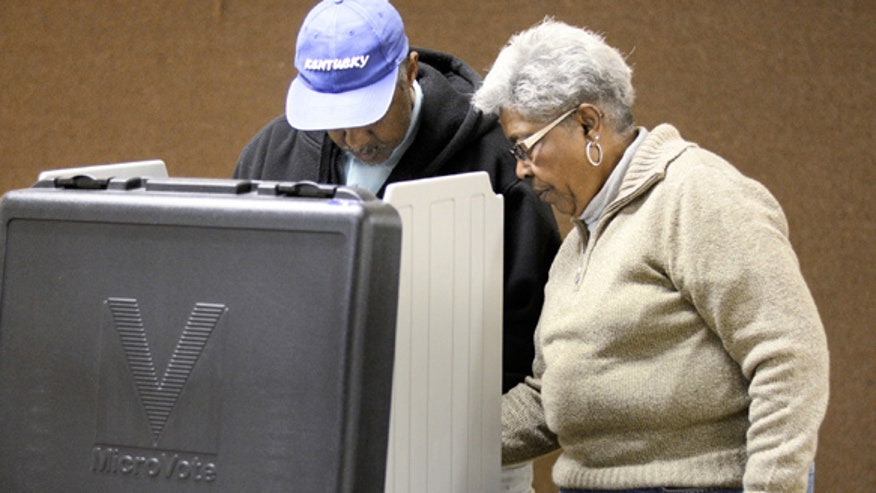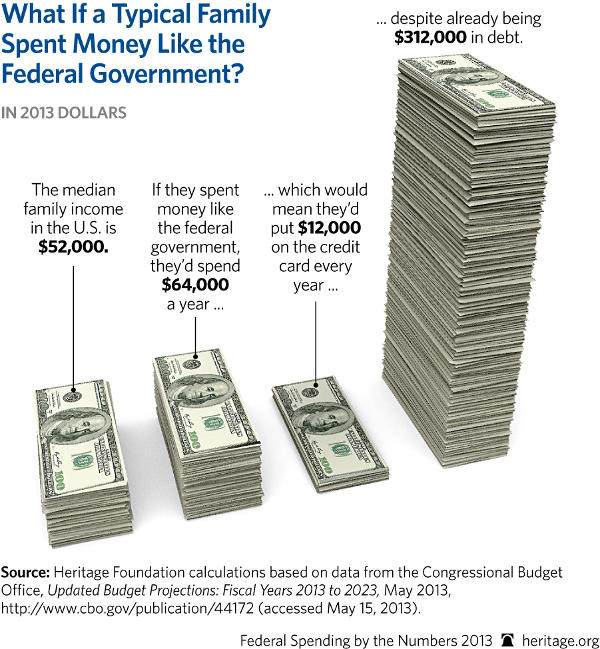“Take this Supreme Court decision and shove it.”
A new Rasmussen Poll indicates that a growing number of Americans want state governments to tell the Supreme Court to get out of the business of rewriting laws and telling American citizens how to live their lives.
In a new poll, Rasmussen reported the percentage of Americans who want states to tell the Supreme Court it does not have the power to rewrite the Affordable Care Act or force sovereign states to authorize gay marriages has increased from 24 percent to 33 percent after last week’s Constitution-defying decisions by the court.
A closer look at the poll results indicates that popular sentiment for state defiance of the federal government extends beyond just the Supreme Court’s latest decisions.
“Only 20% [of likely voters] now consider the federal government a protector of individual liberty,” the Rasmussen Poll finds. “Sixty percent (60 %) see the government as a threat to individual liberty instead,” it adds.
“Take this regulation and shove it,” and “take this grant and shove it,” are two additional battle cries which appear to resonate with a growing popular sentiment, especially in “flyover country,” those 38 states outside the dozen in which President Obama won more than 56.2 percent of the vote in 2012.
(In descending order of support for Obama, those twelve states are: Hawaii, Vermont, New York, Rhode Island, Maryland, Massachusetts, California, Delaware, New Jersey, Connecticut, Illinois, and Maine. Arguably, three additional states where President Obama won between 54 percent and 56.2 percent of the vote in 2012 could be added to this list: Washington, Oregon, and Michigan.)
One hundred and fifty years after the end of the Civil War, it is becoming increasingly clear that there are two Americas—one where the principles of constitutionally limited government and individual liberty are still revered, the other where statism and the trampling of individual rights are on the rise.
The Tea Party movement arose in 2009 to restore those principles of constitutionally-limited government. But despite electoral victories that placed Republicans in control of the House of Representatives in 2010, and the Senate in 2014, it is undeniable that the Republican establishment those elections empowered is instead aligned with the forces of statism.
The majority of the members of the Supreme Court itself are also clearly part of the “elitist” camp of anti-constitutionalists. As Breitbart’s Thomas Williams noted, and Justice Scalia himself pointed out in his scathing dissent in the gay marriage decision, not a single member of the nine member court is of the Protestant faith. Not a single member has graduated from a law school other than Harvard, Yale, or Columbia. Nor has a single member done anything other than practice some version of corporate law with “big law” firms, sit on a federal court, work for the federal government, or work in left-wing academia.
With the entire apparatus of the federal government now aligned against constitutionally limited government, some traditionalists have given themselves over to despair and defeatism. That negative view, however, fails to understand the solution provided to usurpations of power by the central government found within the Constitution itself, with origins in the Declaration of Independence, whose signing on July 4, 1776 we celebrate today.
As Rasmussen Reports noted, “The Declaration of Independence, the foundational document that Americans honor on the Fourth of July, says that governments derive their authority from the consent of the governed, but just 25% believe that to be true of the federal government today.”
Even more significantly, however, the recent Supreme Court decisions are a complete rejection of the concepts of state sovereignty articulated in the 10th amendment, the last element of the Bill of Rights, the promise of whose passage by the First Congress was key to the ratification of the Constitution.
The 10th amendment, ratified along with the other nine amendments of the Bill of Rights on December 15, 1791, reads as follows:
“The powers not delegated to the United States by the Constitution, nor prohibited by it to the States, are reserved to the States respectively, or to the people.”
The concept of popular resistance to the unconstitutional encroachment of the federal government on the rights of individuals and states has been gaining momentum over the past several years.
Conservative radio host Mark Levin, for instance, has advocated on behalf of an Article V Convention of the States to propose new amendments to the Constitution for ratification by the states that would limit federal powers.
Conservative author and intellectual leader Charles Murray has also advocated for a type of civil disobedience to resist unlawful federal regulations through the use of well funded legal challenges to the most egregious of those regulations.
Both concepts have merit, but ultimately lack the power and effective counter-attack available through the simple mechanism offered by the 10th amendment—widespread resistance to federal overreaches by the state governments themselves.
Bolder, constitutionally based resistance at the state level, is a practical and viable remedy, one that already has broad popular support among conservatives.
As Rasmussen Reports noted:
[T]he voters who feel strongest about overriding the federal courts – Republicans and conservatives – are those who traditionally have been the most supportive of the Constitution and separation of powers. During the Obama years, however, these voters have become increasingly suspicious and even hostile toward the federal government.
Fifty percent (50%) of GOP voters now believe states should have the right to ignore federal court rulings, compared to just 22% of Democrats and 30% of voters not affiliated with either major party. Interestingly, this represents a noticeable rise in support among all three groups.
Fifty percent (50%) of conservative voters share this view, but just 27% of moderates and 15% of liberals agree.
Widespread resistance at the state level, however, will require two elements: strong governors and strong state legislatures willing to vigorously assert their 10th amendment rights.
At the local level, we’ve already seen the first indications that a movement may be afoot. In Tennessee, for example, the entire Decatur County Clerk’s Office resigned rather than enforce the recent gay marriage decision announced by the Supreme Court.
Isolated pockets of resistance are springing up around the country.
And yet, even among “The Great 38 States”—flyover country where President Obama either lost or won less than 56.2 percent of the vote in the 2012 election—leadership at the executive level is lacking.
The next electoral battle for the preservation of the constitutional republic will be fought not only for the highest office of the executive branch in 2016—it will also be fought in the gubernatorial races of those “Great 38 States” where the vast majority of voters still believe in America, and still believe in constitutionally limited government.
Freedom of the individual states from the usurpations of the federal government does not mean secession from the constitutional republic. It is, instead, the surest realistic mechanism that remains to preserve the constitutional republic.
By limiting the role of the federal government to the exercise of that very narrow set of specifically “enumerated powers” ascribed to it in the Constitution, state governments can guarantee that our constitutional republic will continue to flourish for generations to come.
The alternative is a constitutional republic in name only, a dystopian oligarchy where words have no meaning, right is wrong, good is bad, truth is deception, and the rule of law is invented anew each day by the ruling class of federal royalty.
As for that dirty dozen of liberal blue states, like California, New York, and Massachusetts? Let them continue on their path of reckless spending and experience the fate of modern Greece.
Meanwhile, the rest of us can continue to choose liberty.








